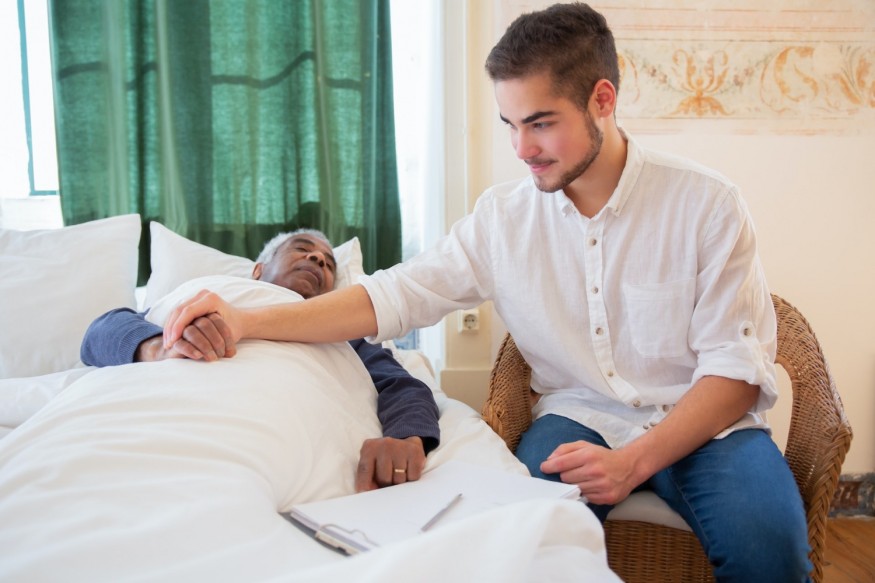
Hypertension, also known as high blood pressure, is a major health problem common in older adults. It's also the most crucial risk factor for stroke, one of the top causes of death for adults over 65.
What makes hypertension even more alarming is that it's a "silent killer." According to the World Health Organization, many people are unaware of hypertension because it may show no obvious symptoms unless severe. This puts the elderly at an even higher risk for heart disease, heart failure, and stroke, among other things.
Although hypertension doesn't have definitive symptoms, you and your aging parents should never neglect the following signs.
Headaches
Hypertension headache feels like throbbing or pulsating, usually on both sides of your head, like a "hair band" type of pain. Although it generally improves throughout the day, it may stay and worsen the whole day, especially when doing physical activities.
It's usually the most severe in the morning. Normally, our blood pressure falls by 10-30% when we sleep and rises when we wake up. This increase in blood pressure in the morning, also called morning hypertension, is likely to cause headaches. While this may be significant for some, it may put hypertensive people at risk of complications like heart attack and stroke.
Lightheadedness
While lightheadedness or being slightly off balance is common among older adults due to their old age, it may be an early warning sign of a stroke caused by high blood pressure. Most of the time, this symptom occurs due to insufficient oxygen supply to the brain.
If the dizziness is due to watching a sped-up video or standing up too fast, it's likely nothing to worry about. However, if it doesn't go away for a long period, it's safer to make an appointment with a doctor.
Vision Changes
Blurred and dim visions in the elderly may likely be caused by hypertension. It's likely hypertensive retinopathy or damage to the retina due to high blood pressure. Retina is located in the very back of the eye and is responsible for receiving and converting lights into neural signals that'll be sent on to the brain for visual recognition.
When blood pressure is too high, the blood vessel walls in the retina may thicken. When this happens, the blood vessels narrow, restricting blood from reaching the retina. Consequently, the retina becomes swollen and damaged, resulting in headaches, dim vision, or, worse, vision loss.
Shortness of Breath
One of the early signs of high blood pressure is shortness of breath. Hypertension narrows the blood vessels in the heart. When that happens, the heart will work harder to pump blood to the lungs and the rest of your body.
When the heart pumps harder than usual, it may eventually cause heart problems. It usually presents as shortness of breath but can also be other symptoms like swelling in legs and weakness, persistent cough, and chest pain.
Irregular Heartbeat
Another heart condition related to high blood pressure is atrial fibrillation (A-fib). It's a condition where the heart beats irregularly and quickly, resulting in blood clots in the heart, heart failure, stroke, and other heart-related complications.
An occasional fast heartbeat happens when we're doing physical activities or feeling some emotions. It's normal and shouldn't be a cause for serious concern. However, if the symptoms are chronic, seek medical attention immediately.
How to Lower A Senior's Blood Pressure Quickly and Safely?
Soaking in a hot bath or a hot shower are simple ways to immediately lower high blood pressure at home. They're relaxing the muscles and mind. When relaxed, muscles widen, and the circulatory system works well; both can help lower blood pressure.
The hot temperature in hot baths and showers can also lower blood pressure because they can dilate the blood vessels.
Another way to prevent the complications of hypertension is to not get stressed. The stress hormone cortisol narrows blood vessels, which then increases blood pressure. When feeling stressed, do whatever you can to feel better and relax.
For example, you can do breathing exercises, such as the 30-second technique (taking six deep breaths in 30 seconds). Like hot temperature, slow, deep breathing exercises can also help dilate blood vessels and lower heart rate, decreasing overall blood pressure.
Lastly and more importantly, take prescribed blood pressure medication. Medication adherence is key in preventing the complications of hypertension. Financially wise, it shouldn't be so hard to do it since many government agencies and organizations provide them for free.
If not for free, they're usually sold at an affordable price or discounted in many ways, including government subsidies or coupons like Toprol XL Coupon.
Final Thoughts
Immediately seek medical help if you or your loved one has the above-mentioned symptoms. The sooner, the better. It's also important to make regular blood pressure monitoring a habit. A great tool for that is mobile health apps, like cardi.health app, which tracks your vital signs and symptoms, manages medications, and helps you gain insight into your heart health changes over time. It is a comprehensive approach to monitoring your health and allows for personalized insights and reminders to help you stay on track. This simple action doesn't only helps keep levels in a healthy range but also prevents being at risk for a health emergency.
© 2025 NatureWorldNews.com All rights reserved. Do not reproduce without permission.





